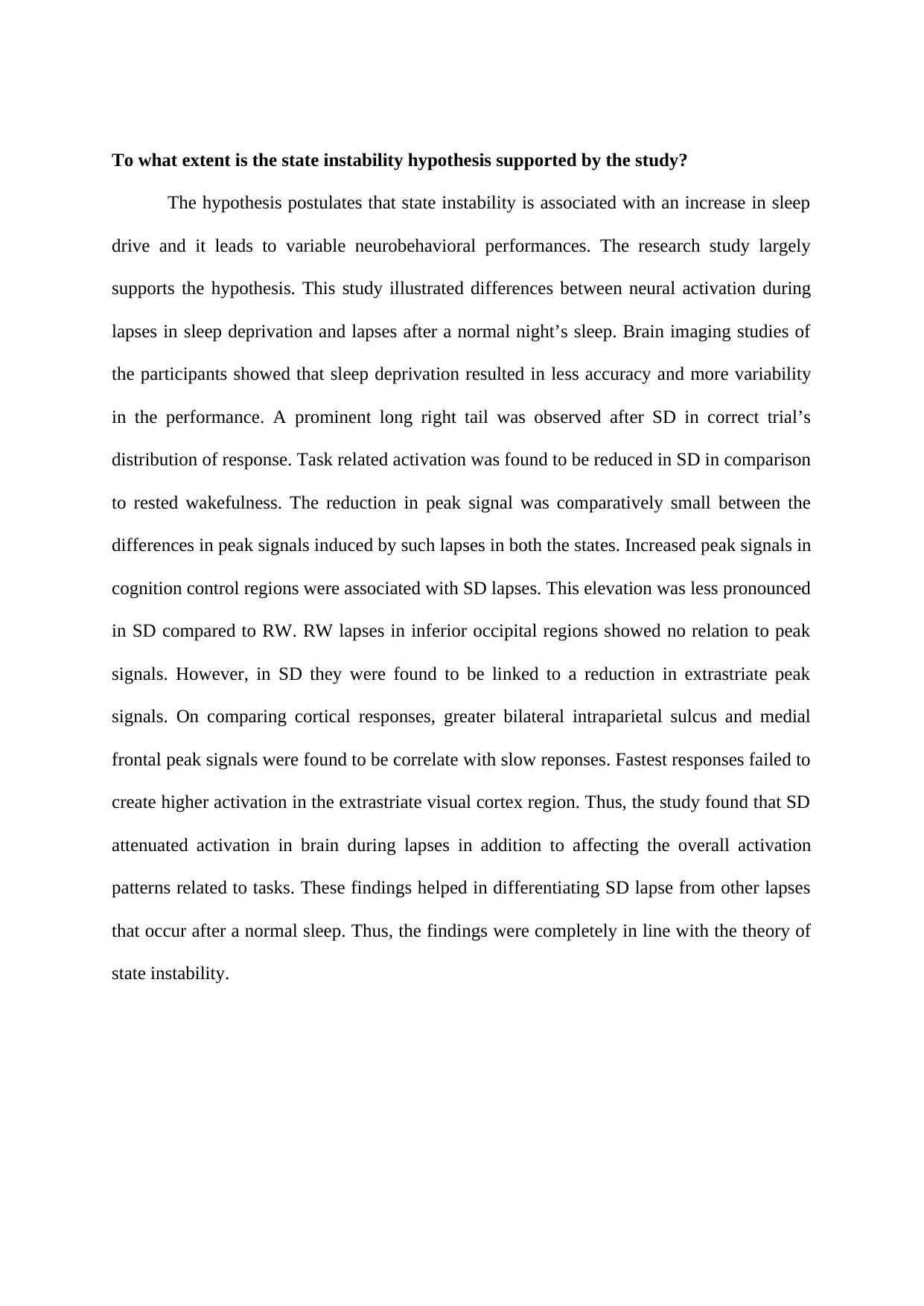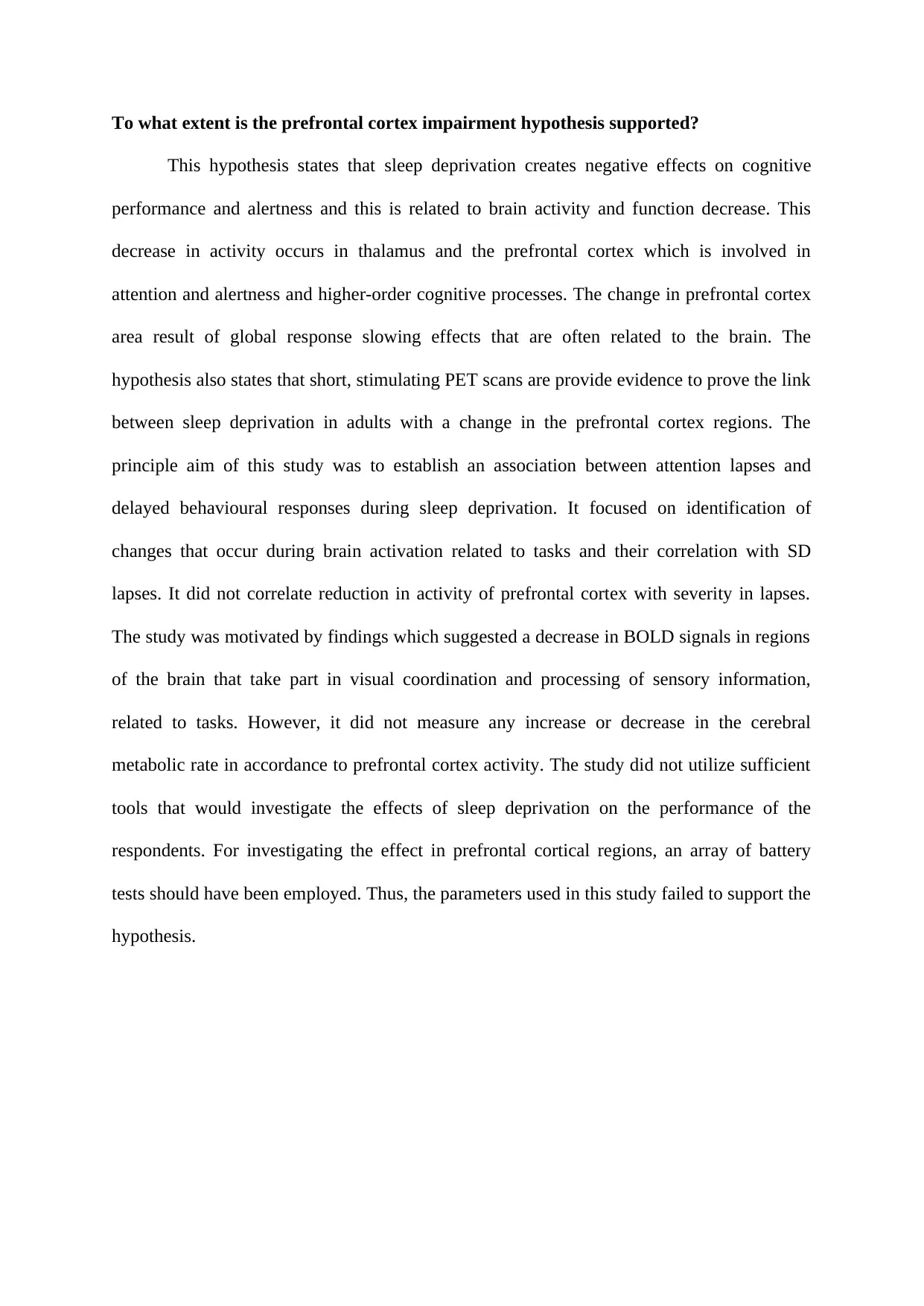Effects of Sleep Deprivation on Cognitive Function and Brain Activity
VerifiedAdded on 2019/11/20
|2
|571
|407
Report
AI Summary
This report analyzes a study on the effects of sleep deprivation on cognitive performance and brain activity. The study investigates the state instability hypothesis, which posits that sleep deprivation leads to increased sleep drive and impacts neurobehavioral performance. The findings largely support this hypothesis, showing differences in brain activation during lapses in sleep-deprived and well-rested states, with reduced accuracy and increased variability in performance under sleep deprivation. The study also examines the prefrontal cortex impairment hypothesis, suggesting that sleep deprivation negatively affects cognitive performance and alertness due to decreased activity in the prefrontal cortex and thalamus. However, the study's methods did not fully support this hypothesis, as it did not directly measure the correlation between prefrontal cortex activity and the severity of lapses. The study's limitations included the lack of comprehensive tests to assess the effects of sleep deprivation on cognitive function. The report highlights the significance of these findings in understanding the impact of sleep deprivation on brain function and cognitive processes.
1 out of 2








![[object Object]](/_next/static/media/star-bottom.7253800d.svg)